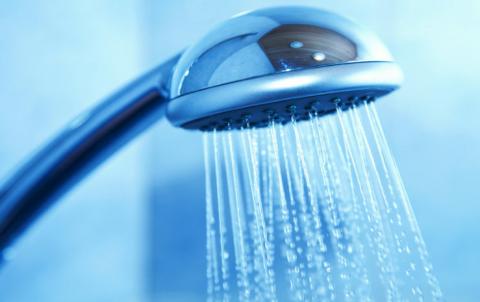Firstly, it is because of the seminal discharge from the male or female genitals, wet dream (ikhtilam), toying with it, or the passion as a result of erotic sight or thought. Secondly, jimak or sexual intercourse, although not removing semen.
The ghusl janabah is important because it deals with other acts of worship, both fardhu (obligatory) and sunnah (recommendable). Those who are in junub condition are forbidden from, among others, performing prayers, iktikaf or sitting in the mosque, surrounding the Kakbah (thawaf), reciting the Qur'an, and touching the Mushaf.
So how to perform ghusl janabat in Islamic laws? In performing ghusl one must perform two pillars. First, the intention that is expressed in the heart. If he or she is able to pronounce orally, this is more important. Examples of such intention are:
نويت الغسل لرفع الحدث الأكبر من الجنابة فرضا لله تعالى
In the Shafi'i school of thought (madhhab), intentions must be performed simultaneously with the time water is first splashed into the body.
Second, flushing all the outside of the body, not to mention the hair and feathers. For hairy parts of the body, water should flow to the deep skin and the root of hair / feathers. The body is assumed to have no impurity.
In addition to the obligatory things, there are also some recommendable (mustahab) things in the ghusl janabat (major ablution). Imam al-Ghazali in his Bidâyatul Hidâyah technically explains the rules of performing the ghusl janabah in detail from the beginning to enter and come out of the bathroom.
Firstly, when entering the bathroom take water and then wash your hands first three times.
Secondly, clean any dirt or impurities that are still attached to the body.
Thirdly, performing ablution (wudlu) as that to pray including prayers. Then wash both feet.
Fourthly, begin the ghusl janabat by flushing heads up to three times - at the same time intend to remove the hadats from the jinabat.
Next, flush the right side of the body up to three times, then the left side of the body up to three times. Do not forget to rub the body, front or back, three times; also interrupt hair and beard (if any). Make sure water flows into the folds of the skin and the root of the hair. Better avoid the hand from touching the genitals - even if touch it, perform ablution again.
Among all the practices what is the obligatory is intention to clean unclean / najis (if any), and splash water throughout the body. The rest is sunnah muakkadah (the most recommended) with virtues that should not be underestimated. Those who ignore it, says Imam al-Ghazali, are losers because performing the recommended acts of worship are patching up deficiencies in the obligatory acts of worship (fardhu). Wallahu A'lam (Mahbib/Masdar)
Terpopuler
1
Keluar Mani yang Tidak dan Membatalkan Puasa
2
Khutbah Jumat: Ramadhan dan Kesempatan yang Tidak Selalu Terulang
3
Khutbah Jumat: Ramadhan, Melatih Sabar, Memperkuat Syukur
4
Khutbah Jumat: Tiga Kebahagiaan Orang Puasa
5
Kultum Ramadhan: Keutamaan Tarawih dan Witir
6
Khutbah Jumat: 4 Cara Menghidupkan Malam Ramadhan dengan Ibadah
Terkini
Lihat Semua



